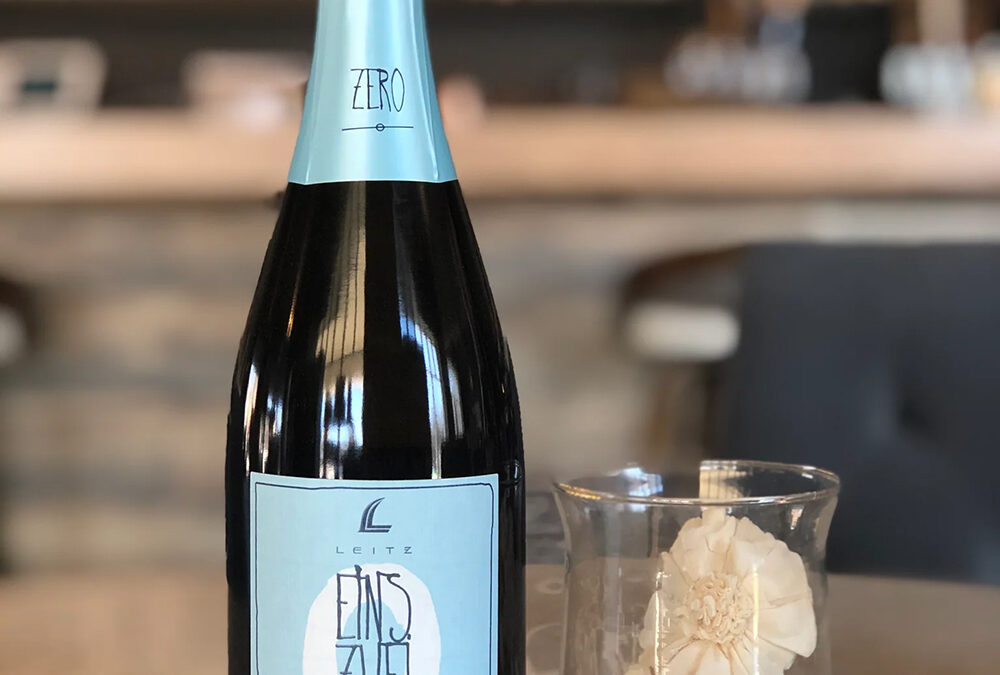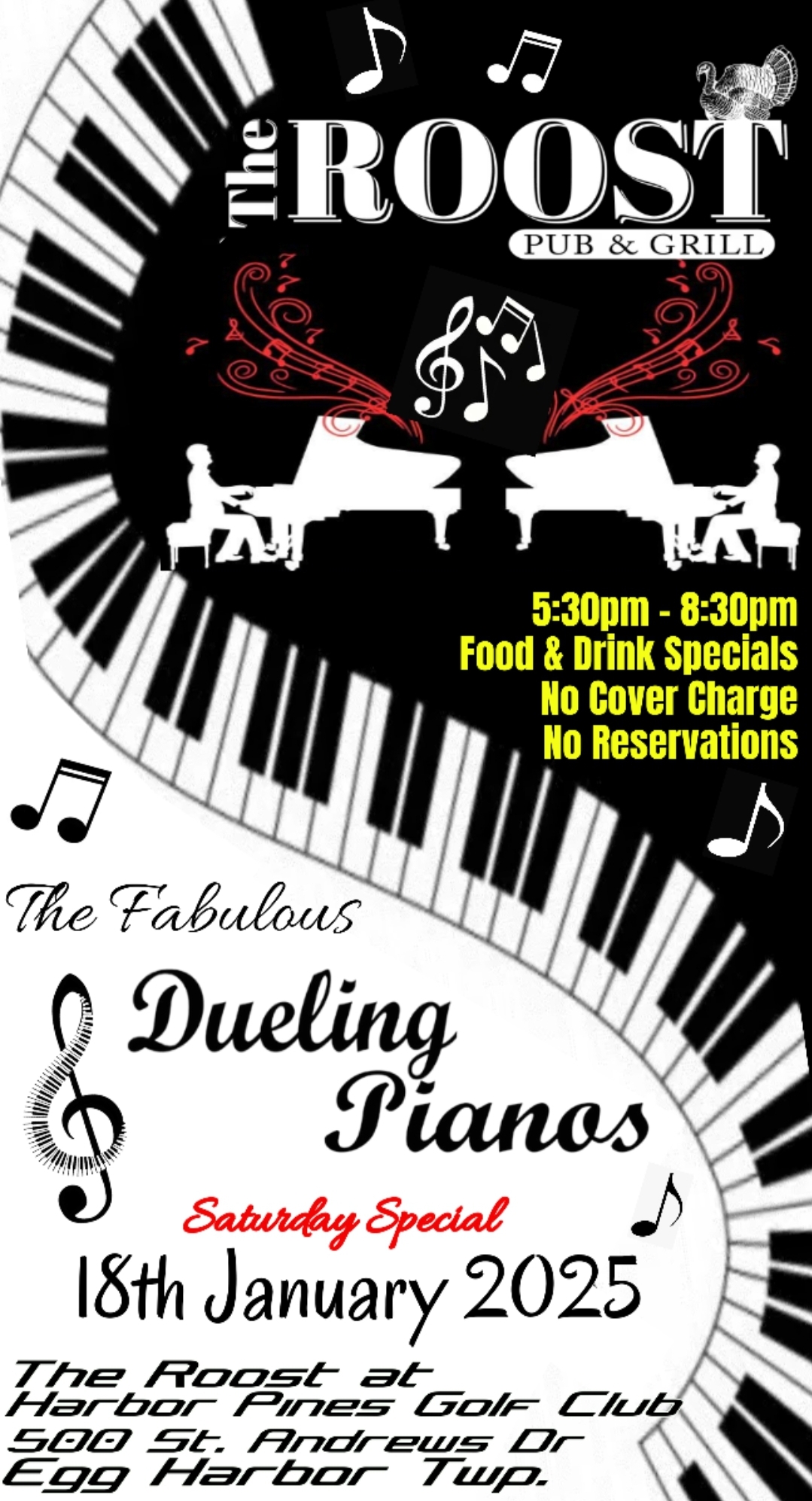Drink Up!
By David Setley
Happy New Year! The first weeks of January are when we are most motivated to implement those New Year’s resolutions. For many, the goal is to adopt a healthier routine of diet and exercise. Giving up alcohol, thus embarking on “Dry January,” is a practice followed by some, while others simply want to know if wine has a place in a healthy diet.
For those seeking the flavors of wine without alcohol, I have good news. In years past, no-alcohol wines lacked that distinct alcohol flavor, but the process of making them has changed. No-alcohol wines are now produced using traditional fermentation and aging processes, but there is a final low-temperature, spinning cone process that removes the alcohol while safeguarding the essential wine aromas and flavors. Wines produced utilizing this newer process are referred to as “dealcoholized” wine. In some cases, all of the alcohol is removed while in other cases, often the red varietals, about one-half of one percent of the alcohol remains.
For a sparkling no-alcohol wine, Ein Zwei Zero Sparkling Riesling is a very nice, semi-dry bubbly from Leitz Winery in Germany. This wine is also available in a Sparkling Blanc de Blanc, a Sparkling Rosé, a still (non-sparkling) Chardonnay, and a Pinot Noir. Please note, the Pinot Noir is called Zero Point Five because it retains half of one percent during the dealcoholizing process; it still qualifies as an NA wine. While all of these are available in 750 ml bottles, the Sparkling Riesling, Sparkling Rosé, and Zero Point Five Pinot Noir are also available in 250 ml cans.
Another sparkling rosé that won’t disappoint is Spring in a Bottle, a product of Wolffer Estates from Rheinhessen, Germany. You may be familiar with Wolffer Estates Summer in a Bottle, a very popular traditional rosé with alcohol. It is equally delicious in this alcohol-removed option.
Another brand that has been getting attention is Thomson & Scott Noughty Wines, available in a Rouge and a Blanc version. The Noughty Rouge is 100% Syrah from South Africa. This dealcoholized red wine is 0.5% ABV and has only 14 calories and 2.5 grams of sugar per 100 ml. The dealcoholized Blanc, also 0.5% alcohol, is a blend of South African Chenin Blanc and Chardonnay.
When I earned my doctorate in business, my mom would introduce me as, “my son, the doctor, but not the kind that helps people.” I think she was simply trying to distinguish my credentials from a medical degree, as I hope to have helped my students over the years… However, Mom was right. I’m not the kind of doctor that can give you medical advice regarding your wine consumption. Looking into the topic, however, provided many angles to consider.
There are scientifically supported benefits to moderate consumption of wine. Studies reported in the Annals of Internal Medicine in 2000 gave evidence that moderate wine consumption (defined as 1-2 glasses per day) led to a reduced risk of premature death by almost one-third. Wine drinkers, as a group, were found to have significantly lower mortality rates from cardiovascular disease and cancer than non-drinkers. This seemed to be related to the effect of alcohol dilating blood vessels, thus increasing blood flow. Wine also appeared to increase levels of HDL, the “good cholesterol,” and lower levels of LDL, the “bad cholesterol.” Another 2000 study from the University of Crete in Greece claimed that two compounds in wine – phenols and resveratrol – can be effective in reducing the occurrence and/or growth of breast cancer cells and liver cancer. Additionally, a report published in the June 2000 edition of the Journal of the American Dental Association supported the claim that another compound in wine, quercetin, inhibits the growth of oral cancer cells. A 2022 article on winepros.com titled “10 Health Benefits of Wine” reiterated the studies above and added the antioxidant effect of wine, especially red wine, in reducing the risk of Alzheimer’s and Parkinson’s diseases. The key is moderation, which is generally considered one 5-ounce serving per day for females and two servings for males. Sorry, ladies… Men have higher levels of alcohol-digesting enzymes and can generally tolerate more.
There may also be long-term effects of chronic or excessive drinking. According to Gateway Foundation, excessive consumption of alcohol can seriously compromise the liver. As many as 35 percent of chronic drinkers will develop alcoholic hepatitis, and up to 20 percent will suffer from cirrhosis. Additionally, wine consumption can contribute to higher blood pressure. For most moderate drinkers, the effects do not typically have long-term implications. However, frequent binge drinking can increase the risk of high blood pressure. Also, excessive consumption can damage the heart muscle and may result in a higher risk of heart disease. I cannot stress enough the importance of moderation.
Overall, the majority of dry white, red, and rosé wines with less than 10 grams per L of residual sugar have less than 1.5 carbohydrates per 5-ounce glass. Sweeter wines with 35-50g/L are higher in carbohydrates, generally between 5-8 per serving. The number of calories is dependent on residual sugar and the percentage of alcohol (ABV). For those dryer wines with low residual sugar, the range for a 5 oz serving is 97-125 calories. Sweeter wines with 35-50 g/L of residual sugar are higher in calories at 112-150 per serving. Of course, if you are trying to lose weight, be aware that the alcohol in wine activates the hypothalamus and amygdala of our brains, which, among other things, control hunger sensations. Drinking alcohol can fool your brain into thinking you are hungry, undermining your diet efforts.
So, if your 2025 resolution involves wine and health, the rules of thumb are: 1) moderation is key, 2) choose dryer wines with lower carbohydrates and, 3) when possible, go for those with lower alcohol or dealcoholized wines. Of course, as you evaluate your health choices, talk to your healthcare provider. Again, though, Mom was right; I’m not that kind of doctor.
Be healthy and happy wining!
David Setley is enjoying his retirement from higher education as a wine educator and certified sommelier at Passion Vines in Somers Point, New Jersey.















